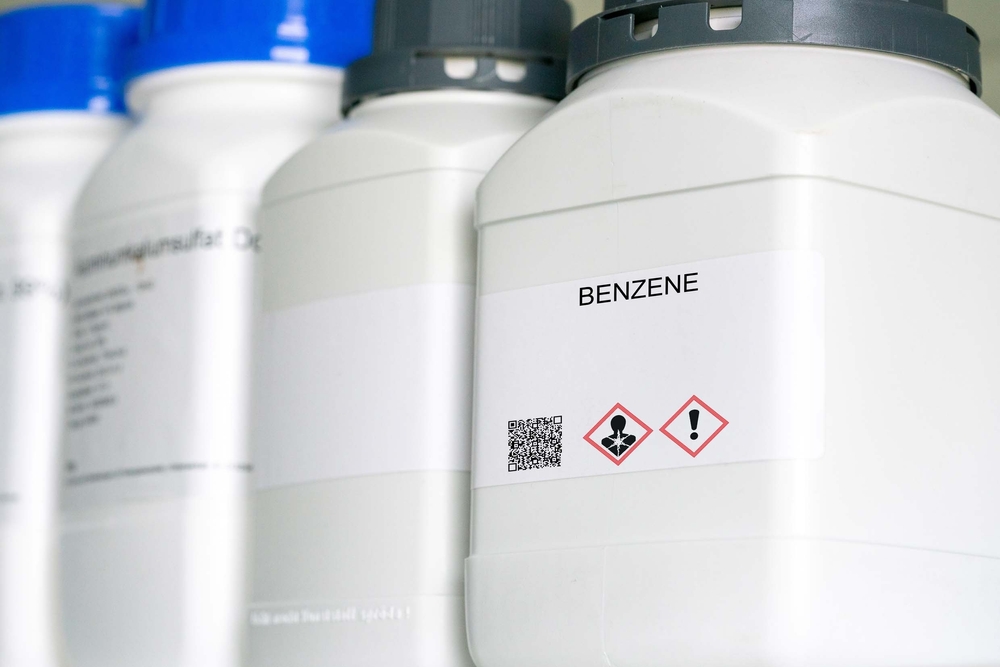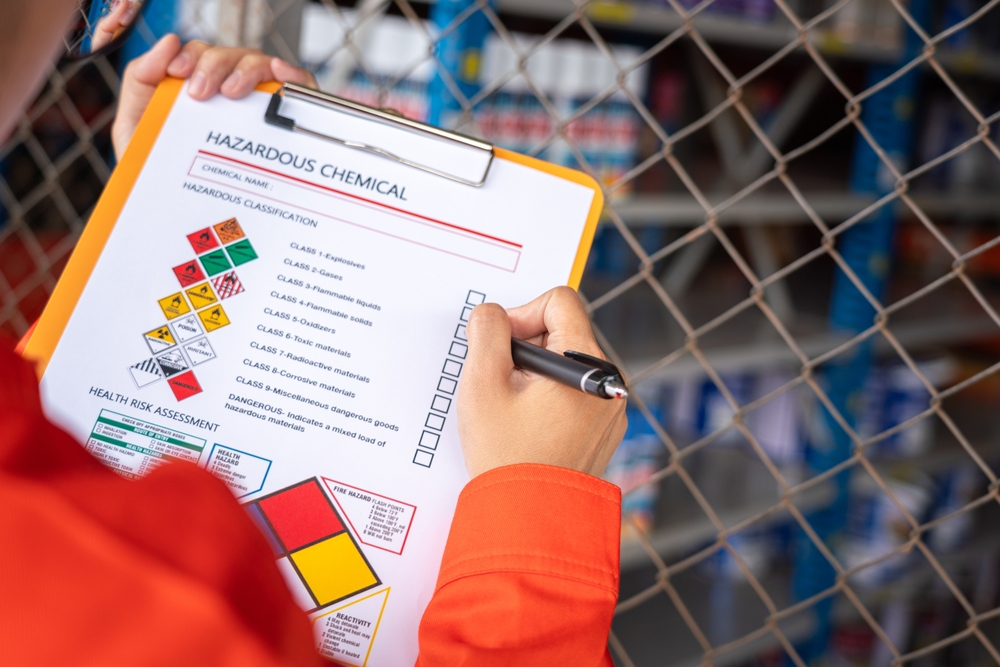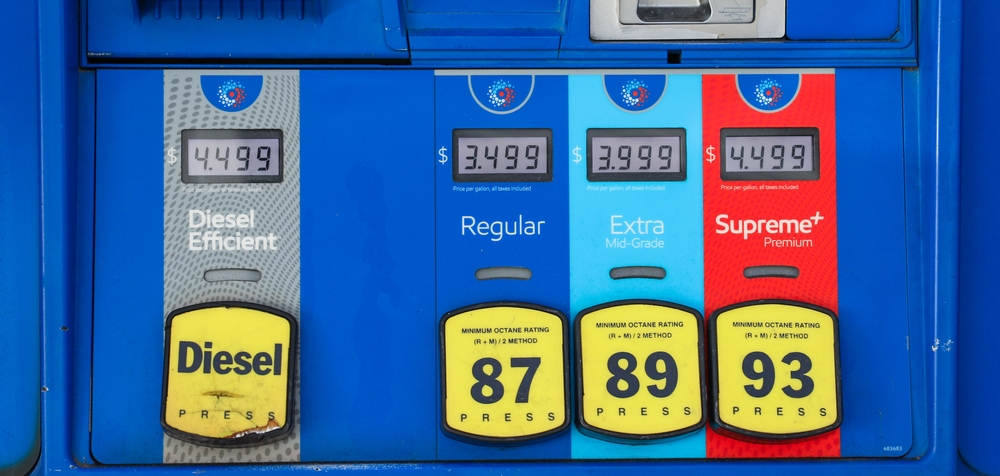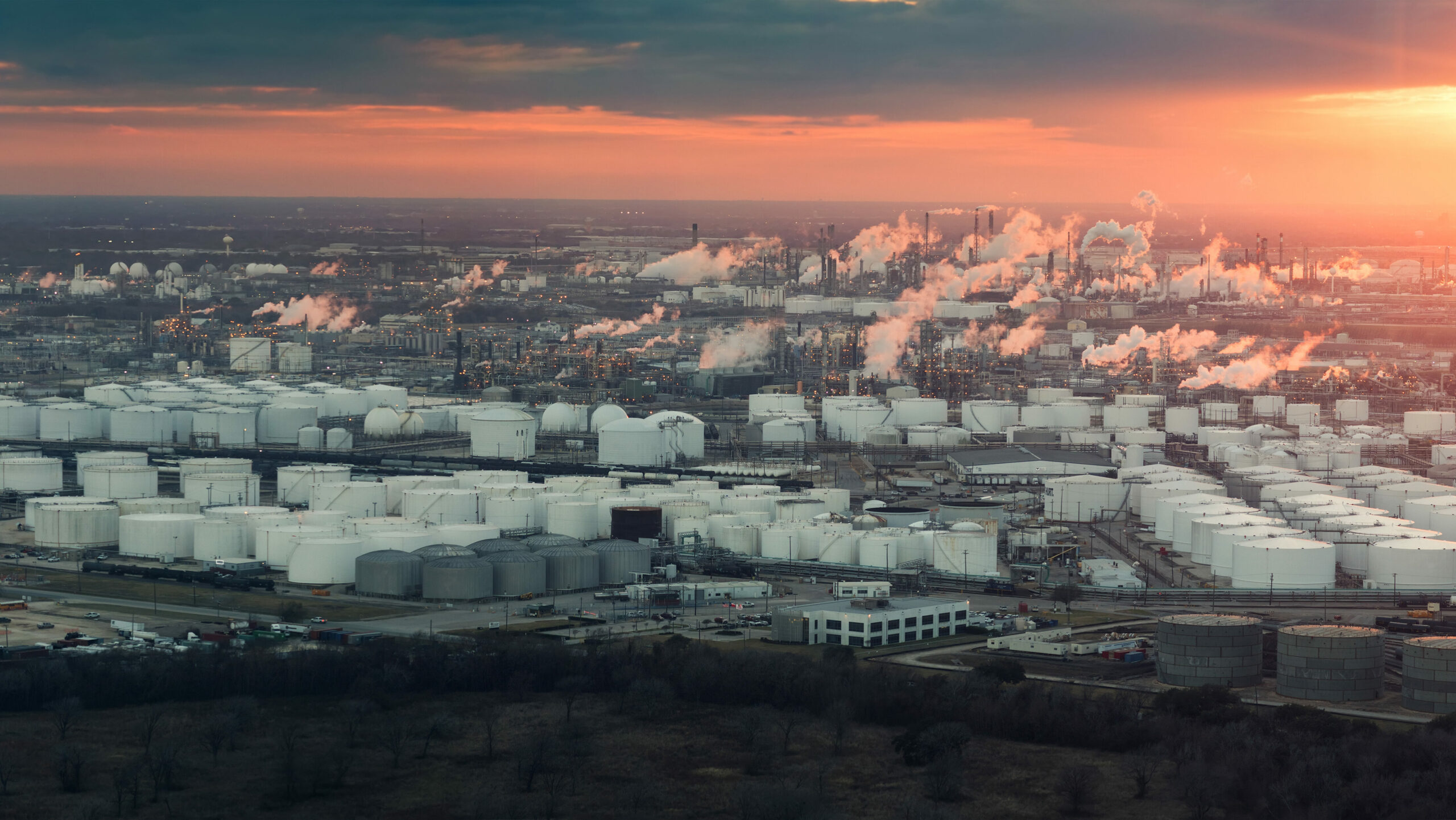If your entire community was at risk of breathing in cancer-causing chemicals every day, you’d think that your government would do something to stop it – and also tell you about it. This is not what has been happening in Texas. Recent findings reveal that high amounts of cancer-causing material, benzene, have been detected in the air outside Houston, specifically in the Channelview’s Jacintoport neighborhood. Shockingly, the Texas Commission on Environmental Quality (TCEQ) has known about this issue for almost two decades, yet residents were never informed about the health risks they were facing. This neglect to alert and protect the community raises significant concerns about accountability, environmental regulation, and the prioritization of public health.
Texans Unaware and Unprotected

For years, the people of Channelview, an unincorporated community east of Houston, have been unknowingly exposed to dangerous levels of benzene. Benzene, a chemical linked to leukemia, other blood cancers, diabetes, and reproductive problems, poses severe health risks when inhaled. Disturbingly, the TCEQ, the regulatory body responsible for environmental quality in Texas, failed to inform residents of these potential health hazards. (1)
Read More: Cancer is Adaptive and Can Switch Sugar for Fatty Acids to Spread Around the Body
K-Solv’s Expanding Operations

The negligence of the TCEQ is highlighted by its failure to rein in K-Solv, a chemical distribution company operating in Channelview’s Jacintoport neighborhood. Despite knowing that K-Solv was releasing significant amounts of benzene since 2005, the agency allowed the company to expand its operations four times. As a result, K-Solv is now permitted to release nearly 20 times more volatile organic compounds, including benzene, into the air annually than it did when the issue was first discovered.
“Any exposure to a carcinogen increases your risk of developing cancer. We have to limit that, and I don’t know why you wouldn’t,” said Loren Hopkins, a professor at Rice University and a nationally recognized expert in environmental science. “We already have a lot of carcinogens in our air. It doesn’t make sense to me to increase the threshold for benzene.” (2)
Escalating Benzene Levels

Documented evidence obtained by Public Health Watch reveals that early readings of benzene levels in Channelview were already exceeding the safe limits set by Texas. As time went on, the problem only worsened. Recent analysis of pollution data by the TCEQ indicates a dangerous increase in benzene levels over the years, intensifying the health risks faced by the community.
Inadequate Regulations and Weak Guidelines

Benzene, a colorless and sweet-smelling chemical found in crude oil and various everyday products, has been linked to leukemia since the late 1920s. However, industry groups have consistently opposed stringent regulations on benzene. The federal government’s attempt to enhance safeguards for workers exposed to benzene was even delayed for almost a decade due to opposition from the American Petroleum Institute.
Furthermore, while several states, including California, have created their own regulations to limit ambient benzene exposure, Texas has weakened its guidelines for the chemical. The TCEQ’s current standards for acceptable levels of benzene, both short-term and long-term, are significantly higher than those in other states. This disregard for public health is alarming, as it exposes the residents of Channelview to higher risks of developing cancer and other life-threatening conditions.
Read More: Video Time-Lapse Shows How Dark Patch of Skin Turns Into Melanoma Cancer
Lack of Accountability and Health-Consciousness

The TCEQ, the regulatory body responsible for protecting the environment and the health of Texans, failed in its duty to prioritize public health over economic growth. The agency’s leaders, answerable to commissioners appointed by the state’s governor, neglected to take meaningful action to address the high benzene levels in Channelview. In fact, they allowed the problem to worsen. The pursuit of financial prosperity for the oil, gas, and chemical industries took precedence over the well-being of the community.
“benzene concentrations measured in the Jacintoport area since 2005 have triggered actions at TCEQ that include placement of stationary air monitors, evaluation of air monitoring data, and follow-up investigations of potential pollutant sources.” the TCEQ said in a statement to Public Health Watch.
PHW also said that the TCEQ said in their statement that residents are safe because the Texas state guidelines are still “set at levels well below concentrations that would cause health effects.”. The guidelines, however, are set on outdated studies – ones that were published in the 1980’s and 1990’s.
Calls for Change

The startling revelations of high benzene levels in Channelview and the subsequent failure of the TCEQ to address the issue have sparked public outrage. Harris County Attorney Christian Menefee, the county’s chief civil lawyer, has expressed his appallment at the agency’s inaction and the lack of oversight over corporations causing pollution in communities. Advocates and community leaders are calling for greater accountability, stricter regulations, and a reevaluation of Texas’ approach to environmental protection.
The Bottom Line

The discovery of high amounts of cancer-causing material in the air outside Houston, specifically in Channelview, is a distressing situation that highlights the need for stronger environmental regulation and heightened prioritization of public health. The failure of the TCEQ to inform and protect the residents of Channelview exemplifies a systemic problem wherein economic interests have overshadowed the well-being of individuals and communities across the state. Swift action must be taken to rectify these issues and ensure the safety and health of all Texans.
Read More: Is Decaf Coffee Safe to Drink? Advocacy Groups Highlights Additive Linked to Cancer
Sources
- “Channelview’s dangerous secret.” Business Insider.
- “A Texas Community Is Being Bombarded by Cancer-Causing Benzene. State Officials Have Known for Nearly Two Decades..” Public Health Watch. David Leffler, Savanna Strott, Salina Arredondo and Jana Cholakovska. December 13, 2023

